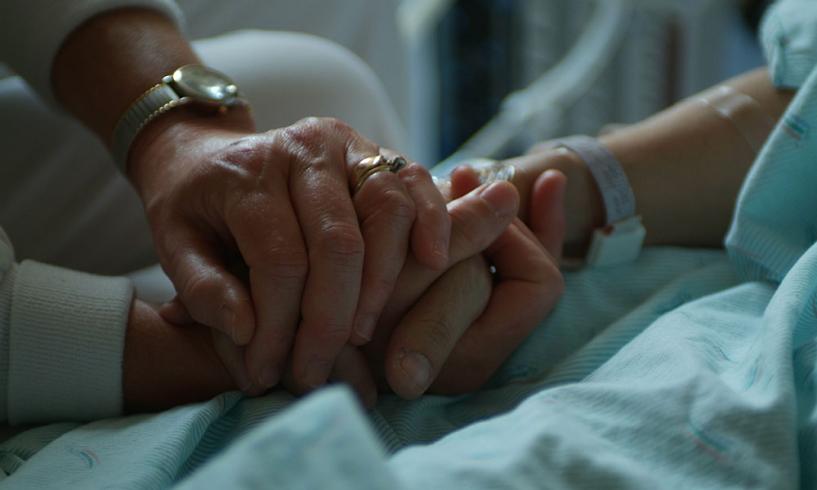By Christine Cascio, BSN, RN, OCN®
When we think of a culture of safety, we often think of a patient’s physical needs. In the process of performing our everyday tasks, a patient’s psychosocial needs can often be overlooked. While prioritizing physical elements of safety is critical to our patient’s wellbeing, it’s also important to remember to view healthcare in a multidisciplinary approach. As something where all patient concerns are addressed to the best of our ability.
You’ll put the bed alarm on a patient to prevent them from overestimating their limitations and injuring themselves from a fall when they say “I need to leave the hospital and come right back,” but did you wonder why this patient felt the need to leave? When was the last time you tried to understand the patient’s perspective of his most critical needs? It’s important to be proactive and advocate for our patients’ psychosocial needs, including their faith and spiritual needs, rather than only focusing on their physical ailments.
I learned this lesson firsthand from a patient who was very ill and bedbound, but refused all care. He insisted that he needed to leave the hospital and come right back. When I asked him exactly why he was refusing care and wanted to leave, he told me that he wanted to get married. I knew this patient was scheduled for surgery later that week. I immediately thought of all of the resources we could utilize to help meet this desire. Working in collaboration with the nurses, doctors, social worker, clergy, and the patient’s significant other and family members allowed us to coordinate his plan of care and provide him the opportunity to get married in his hospital bed. The patient’s family was able to witness an intimate Catholic ceremony in the privacy of his room. The patient and his new wife held hands and recited their vows as they exchanged rings they had borrowed from other family members.
It may not have been under the most perfect circumstances, but it was perfect for them. I’ll never forget the joy that exuded from this patient after he was pronounced a married man to the love of his life. He was very appreciative and told us that was the happiest day of his life.
Once the patient experienced this sense of control over his own life, he no longer appeared to be in distress and was more than willing to be compliant with his treatment. This also eased his nerves prior to surgery and he was able to go to the OR as scheduled. Sharing this moment with this patient and his family reminded me why I love my job as an oncology nurse. We can all truly make a difference in a patient’s quality of care by addressing our patient’s wishes. It’s important to take a step back from the medical needs of a patient at times in order to focus on the patient’s personal needs.
When patients are admitted for an extended time, it can lead to emotional distress. I’m sure we’ve all taken care of patients who have reported a feeling imprisoned in the hospital, along with their sense of helplessness and a loss of control. This can be detrimental to a patient’s psychosocial wellbeing and decrease their desire to want to comply with treatment. Distress screening tools are becoming more widely utilized to assess emotional distress in the oncology population. Together we can proactively prevent emotional distress through ongoing psychological assessments of our patients.






